The best Vitamin C serums for a radiant glow at every budget
Brighten and protect your skin with the best Vitamin C serums, as tested by our beauty editors
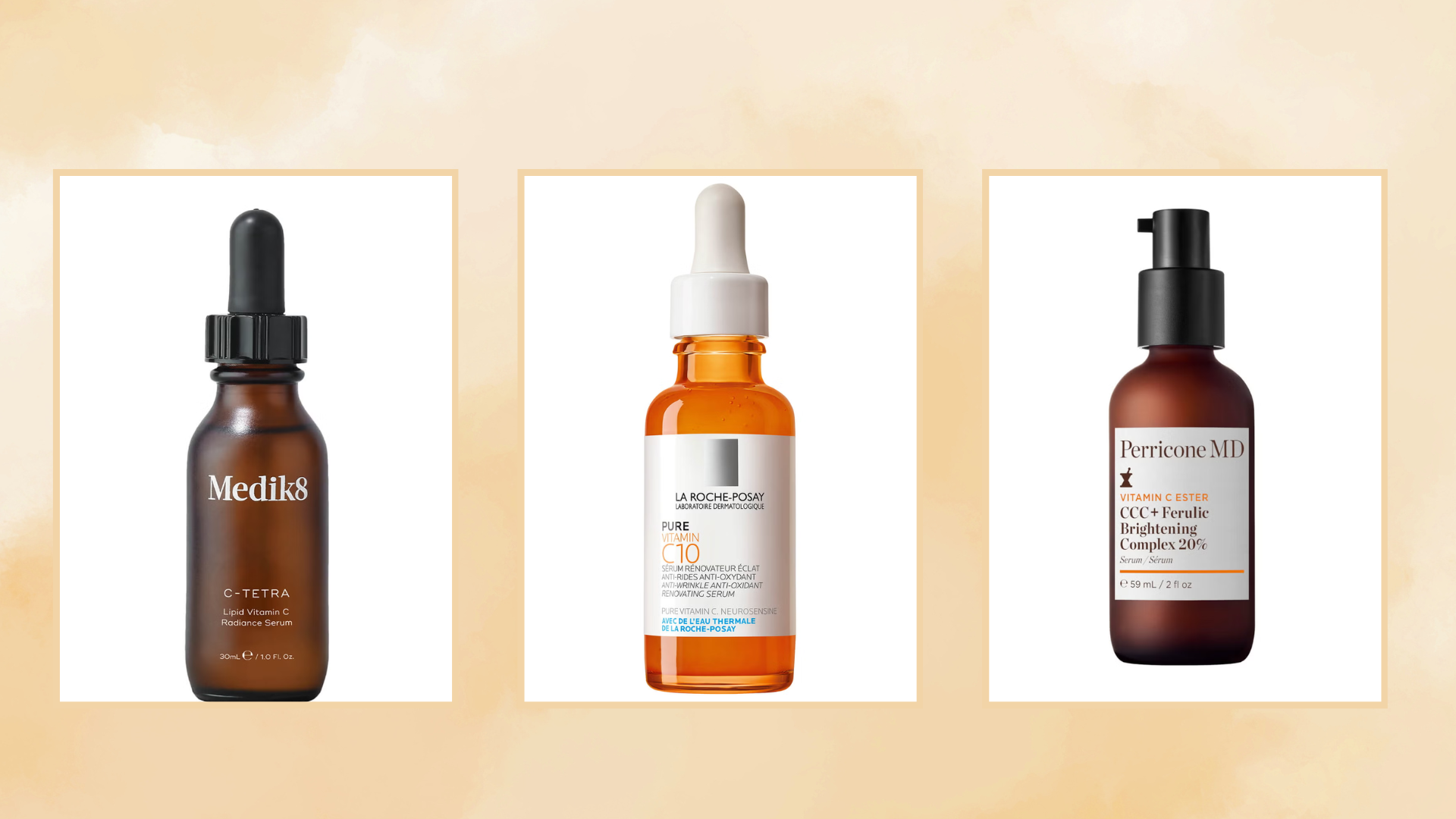
Dionne Brighton
The best Vitamin C serums are something beauty editors have a lot of opinions on. A casual mention of this topic to the w&h beauty team ended in an intense debate, with most of us talking over each other, eager to prove why our pick was the best option.
Why all the hype? Because when formulated carefully and used properly, Vitamin C serums are some of the best skincare products going. "As one of the most potent antioxidants for the skin, vitamin C has multiple benefits", agrees dermatologist, Dr Elif Benar. "They include fading dark spots and hyperpigmentation, brightening the skin, and helping to increase collagen production for an overall healthier complexion." She continues, "In addition, Vitamin C's anti-pigmentary and brightening effects will help with discolouration problems such as hyperpigmentation caused by acne."
Better still, even the most potent form of Vit C, ascorbic acid, is suitable for almost all skin types and is unlikely to cause irritation. This sets it apart from other feted actives such as alpha hydroxy acids and the notoriously reactive retinol, tipping the retinol vs Vitamin C debate in Vit C's favor.
The best Vitamin C serums, as tested by our Beauty Editors
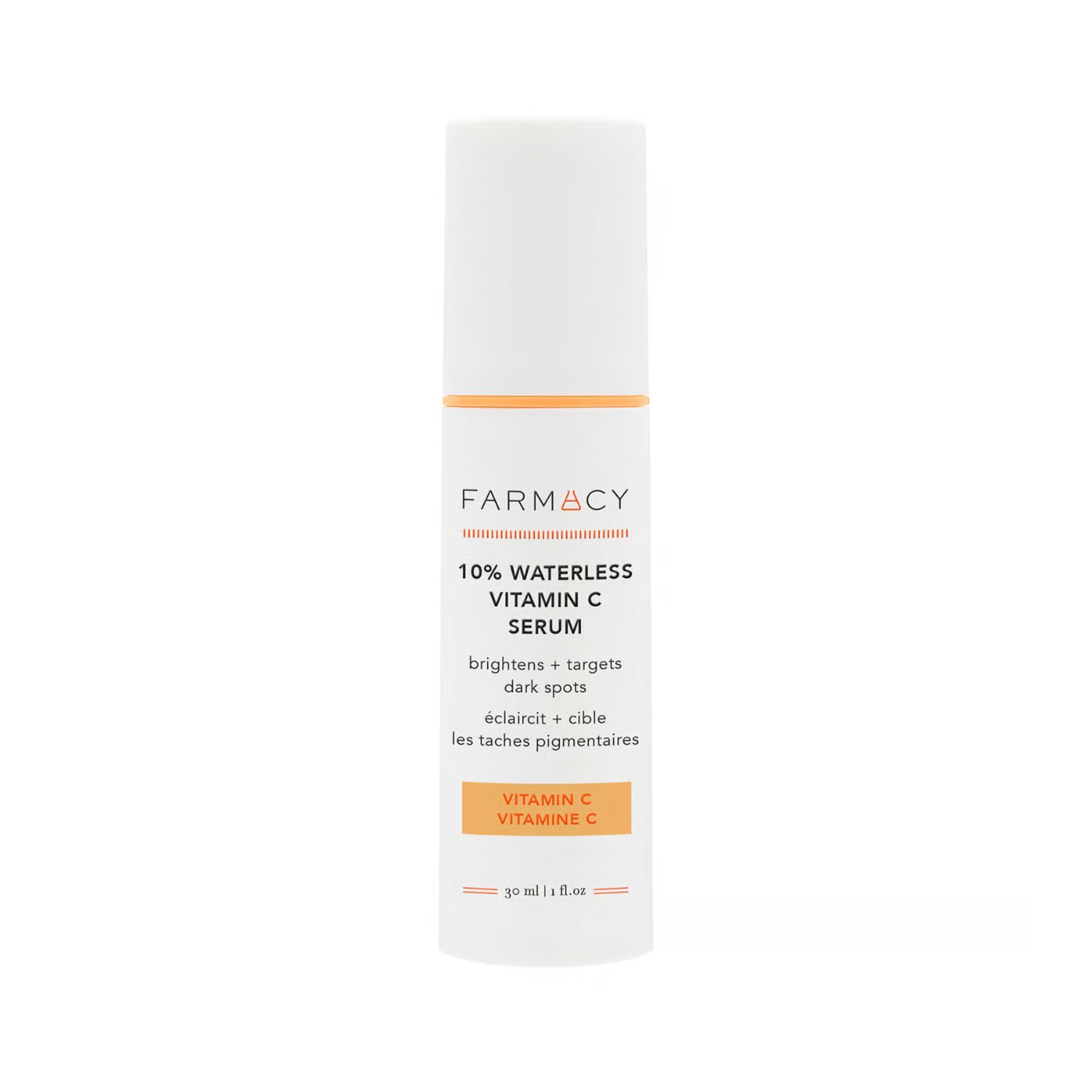
RRP: £50 Vitamin C: 10% Key ingredients: Lactic acid, alpha-arbutin
If you haven't heard of Farmacy, this Vitamin C serum would be a perfect product to get to know the brand. Why? Because unless you are on a tight budget there's very little not to adore here. It contains 10% ascorbic acid, the most stable and powerful form of Vit C, and combines it with gentle exfoliant lactic acid plus alpha arbutin, another antioxidant, for extra skin-protecting powers. It also has a waterless base, which means that precious vitamin C won't be prematurely destabilised by the oxygen in H2O, while the airless pump bottle boosts this protection further. The texture of this oil-free serum is one of the things we loved most. One pump was easily enough for our face and neck, it sank in swiftly, and played well with our moisturiser. Essentially, this works as hard as possible for a topical product and more than lives up to its brightening promises - so it gets top marks from us.
Buy if: You want an oil-free, ultra-stable formula, with a good vitamin C concentration that brightens and refines texture
Avoid if: We couldn’t find any reasons why you wouldn’t want to give this one a try
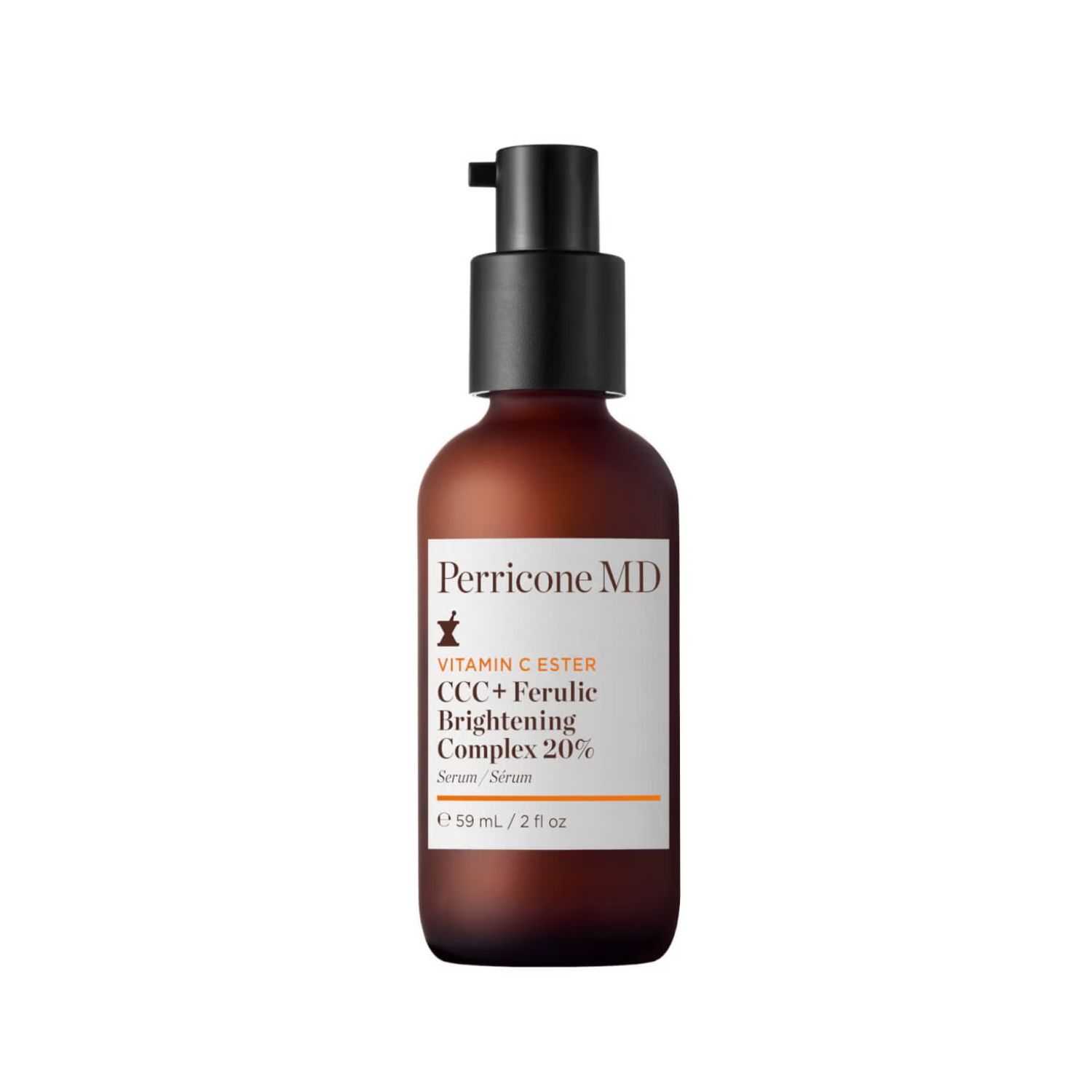
RRP: £139 Vitamin C: 20% Key ingredients: Glycolic and ferulic acid
Founded by dermatologist Dr. Nicholas Perricone, PerriconeMD's skincare products are filled with hardworking ingredients. This is the brand's highest concentration of Vitamin C, working to brighten and even skin. The super powerful blend of Vitamin C works to lighten discolouration, whether that be dark spots or sun damage. One of the creamiest textures we've tried, it applied to the skin beautifully and absorbed super quick. It's said to penetrate into the deepest layer of the skin for maximum effectiveness, and we could tell, as this worked well under makeup and didn't ever pill. The formula includes ferulic acid, which works to protect the skin against free radicals, and appear firmer. This is one of the few Vit C serums with glycolic acid, which works to gently exfoliate the skin, and we could tell as any dullness disappeared a week after testing.
Buy if: You're looking for a Vitamin C serum that works against discolouration
Avoid if: You don't use glycolic acid on your skin
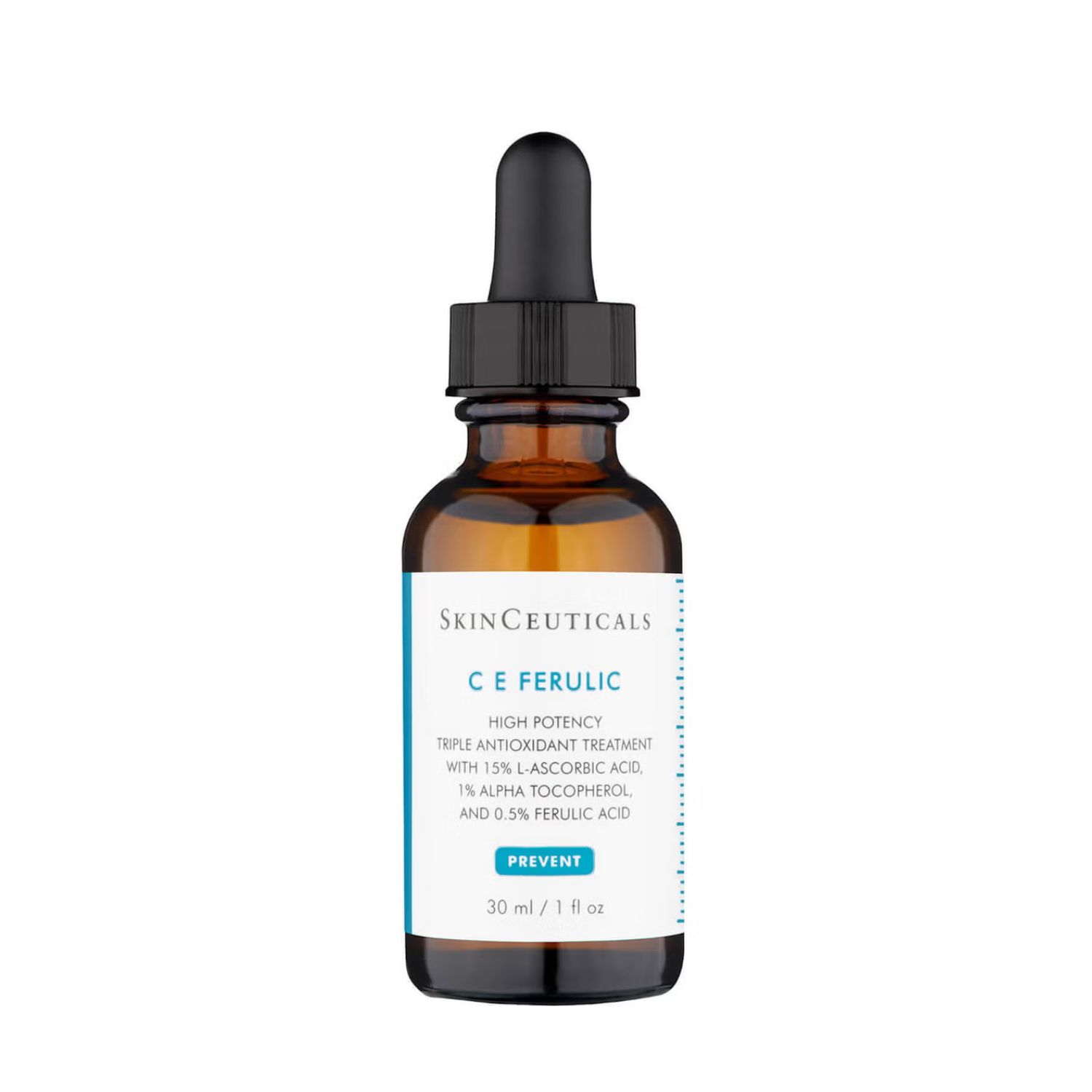
RRP: £165 Vitamin C: 15% Key ingredients: Ferulic acid, Vitamin E
CE Ferulic is on practically every list of best Vitamin C serums, and with good reason. SkinCeuticals are pioneers of antioxidant skincare and this is their hero product. In fact, the only thing keeping it off the top of this list is the price, which will be prohibitive to some. Budgets aside, if you can afford to buy this, you should. It combines 15% gold standard stable Vitamin C with Vitamin E plus ferulic acid, another antioxidant that's known to boost the power and stability of Vit C when combined. You'll spot this trio of ingredients together a few times in this list, but just know that these guys did it first. Texture-wise this is loose and watery, so should be pressed into the skin rather than massaged. Due to this very light feel this is one of our favourite Vit C serums for layering, it sinks into skin instantly and you can top it with any other products, no problem.
Buy if: You want an incredibly effective Vit C with added antioxidants and a light texture thats easy to layer
Avoid if: You don’t want to spend over £100
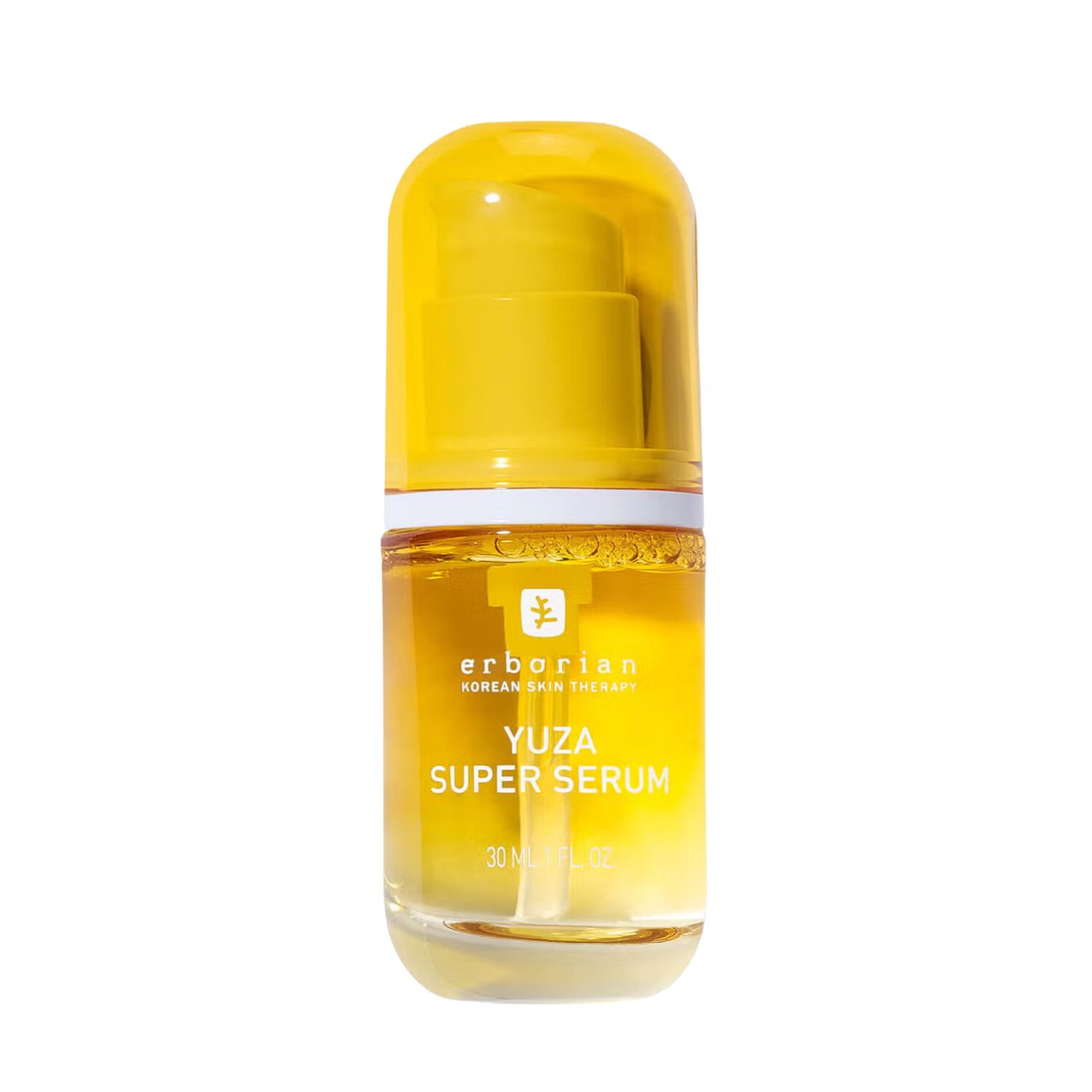
RRP: £46 Vitamin C: Not specified Key features: Naturally derived Yuzu as a form of Vitamin C, ceramides
Leading Korean skincare brand Erborian, has created one of the best Vitamin C serums made up of 80% super ingredients. The formula is one to take note of. First up, there's Vitamin C and added Yuzu, a citrus fruit extract that is naturally Vitamin C rich and known for its antioxidant and hydrating properties. Then there are added ceramides that work to strengthen the skin's barrier as the Vit C works at adding radiance to the skin. Thought that was enough skin-loving ingredients for one serum? Think again. This special serum is infused with a prebiotic to help maintain balance in the skin. The texture is one of the lightest ones we tried, and it sunk into the skin immediately upon application, with no greasy finish, our SPF and moisturiser sat on top beautifully without any pilling. Pleasantly surprised by this mostly natural Vit C serum, we will certainly be repurchasing this one.
Buy if: A non-greasy, mostly natural formula is at the top of your priorities in a Vitamin C serum
Avoid if: You like to pair your Vit C with other antioxidants
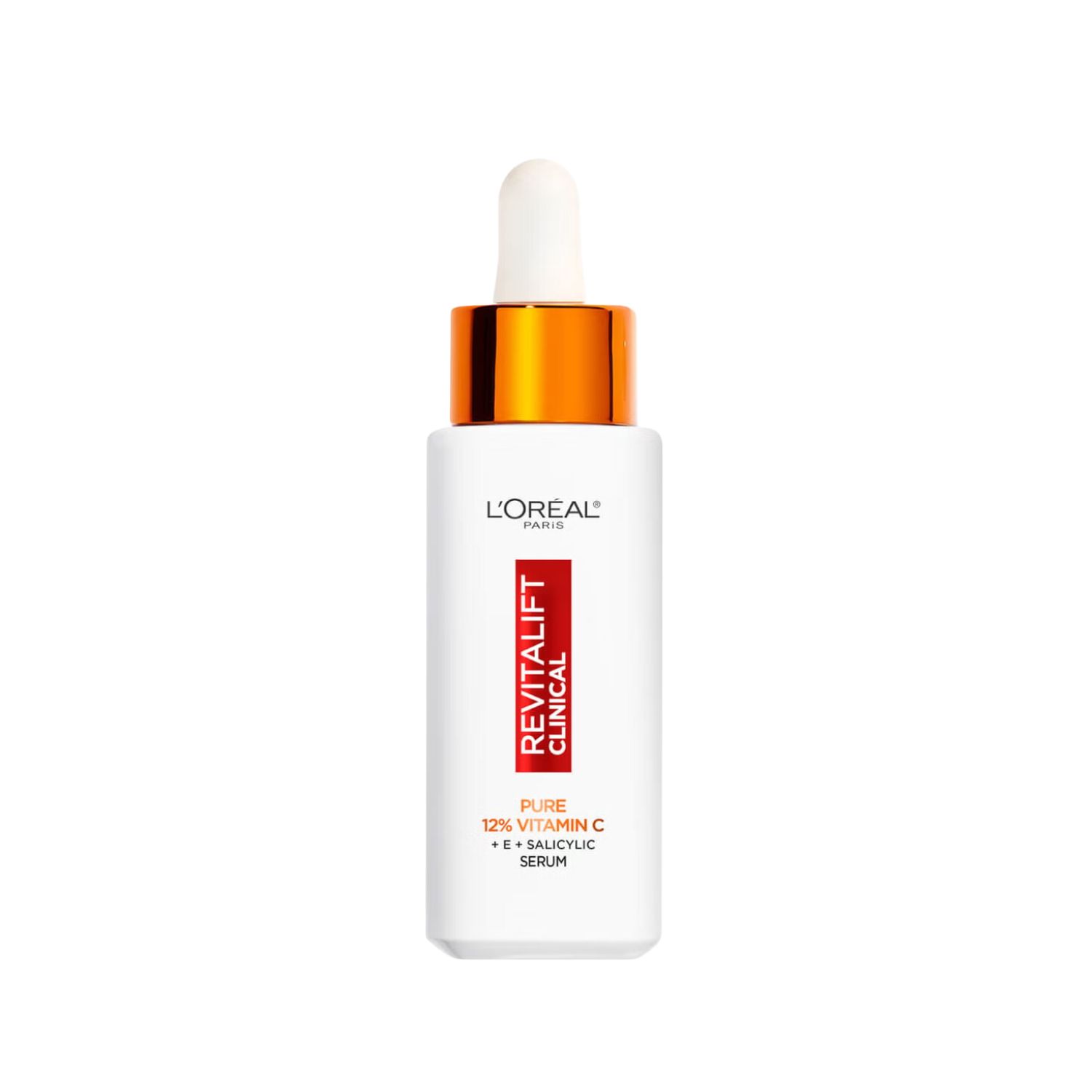
RRP: £31.99 Vitamin C: 12% Key ingredients: Salicylic acid, hyaluronic acid, Vitamin E
This packs a very respectable amount of skincare activity into a modest price tag. Oil-clearing salicylic acid gets to work quickly, hydrators hyaluronic acid and glycerin provide an instant plumping effect, while antioxidant Vitamins C and E are more of a long game. That makes this a nice cocktail for oily skin types as those instant effects offer all the motivation you need to achieve your long-term goals. It’s thicker than most other products on this list, more of a velvety gel than the thin fluid you might expect from a Vitamin C serum. This does make it easier and in many ways more pleasant to massage in. Unusually at this price, the 12% Vitamin C included is ultra-stable L-ascorbic acid, kept more so by the tinted pipette packaging. It does start to oxidise after a few weeks of use so you will notice the formula taking on an orangey hue, but this is the case for almost all Vit C serums - usually costing three times what this does - so we can't grumble.
Buy if: You want a formula with pore-clearing salicylic acid, at an affordable price
Avoid if: You want to avoid silicones
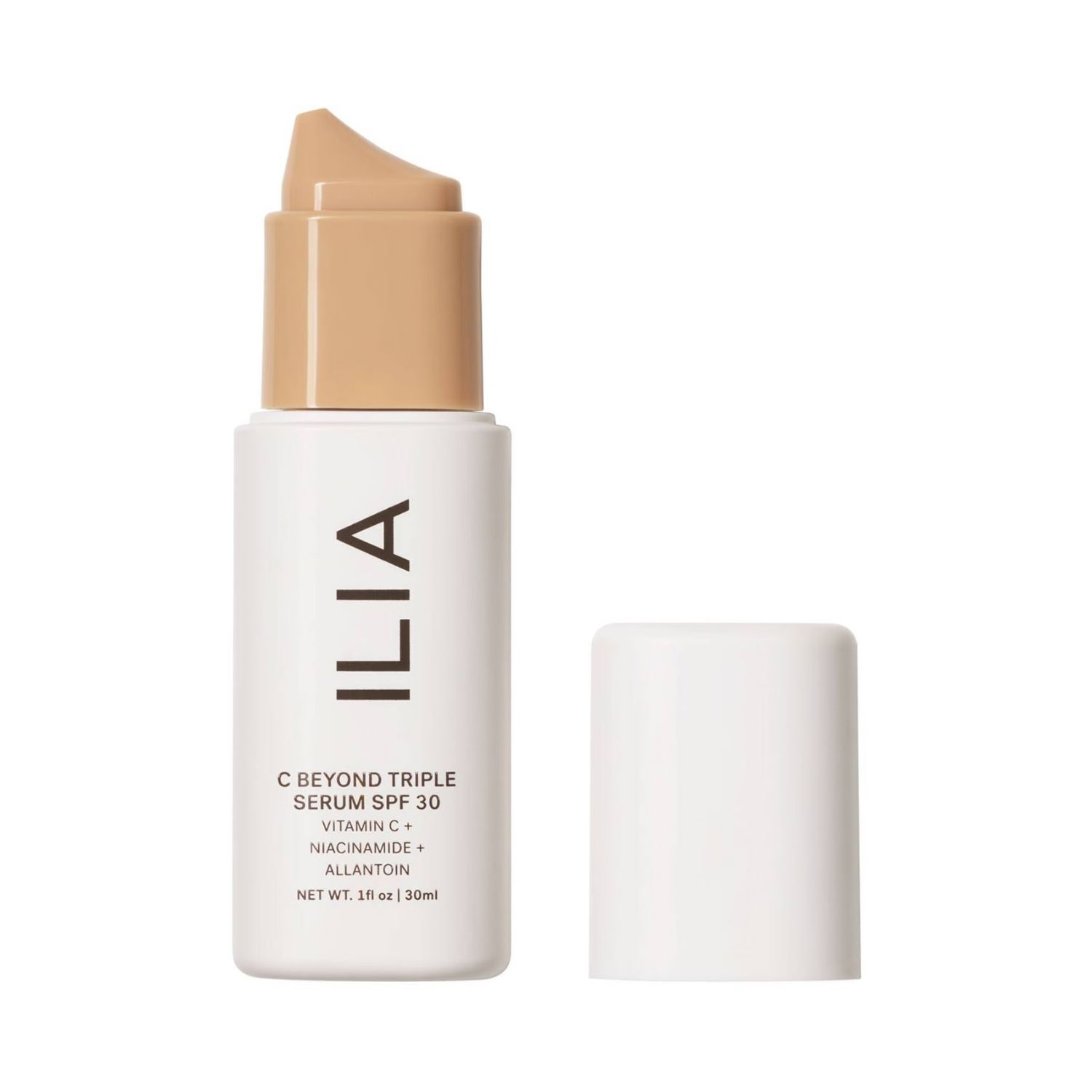
RRP: £64 Vitamin C: Not specified Key ingredients: Zinc oxide, Niacinamide
This is unlike any other Vitamin C in this round up. The serum is one of the first of its kind, using unique encapsulation tech to combine Vitamin C, niacinamide and mineral SPF 30. Simultaneously brightening and protecting skin, the water-free base felt super lightweight when we applied it, and our skin instantly felt nourished and saw a change in overall brightness the more we used it. Even some of the best facial sunscreens can leave a white cast, but this particular serum is available in three translucent tones that won't add coverage (or cake) but will ensure there is no white cast. On top of that, the formula is vegan, fragrance-free and non-comedogenic.
Buy if: You love a two-in-one product and want to combine your Vitamin C with sun protection
Avoid if: You only wear SPF 50 so will have to add an SPF on top
![Product shot of Lumene Nordic-C [VALO] Glow Boost Essence, one of the best Vitamin C serums](https://cdn.mos.cms.futurecdn.net/HN6VccywNmY9Xow3RtEAGA.jpg)
RRP: £34.90 Vitamin C: Not specified Key ingredients: Artic cloudberry and spring water
One of the main reasons we use vitamin C is to brighten skin, and this particular serum claims skin will be more radiant in just two weeks. Did it deliver when testing? It did indeed. While not the hardest working on this list in terms of other actives. Lumune prides itself on its natural skincare ingredients and this essence is made up of Artic cloudberry (rich in antioxidants), Artic spring water, two different types of hyaluronic acid and Vitamin C. The result? Hydrated, smoother and more radiant looking skin. All of the brands formulas are vegan and use upcycled ingredients. After testing for a few weeks, we found our skin was clearer, brighter and loved how easily this essence sunk into the skin.
Buy if: You like to use mostly natural products in your skincare routine
Avoid if: You want your Vitamin C to be formulated with other active ingredients or SPF
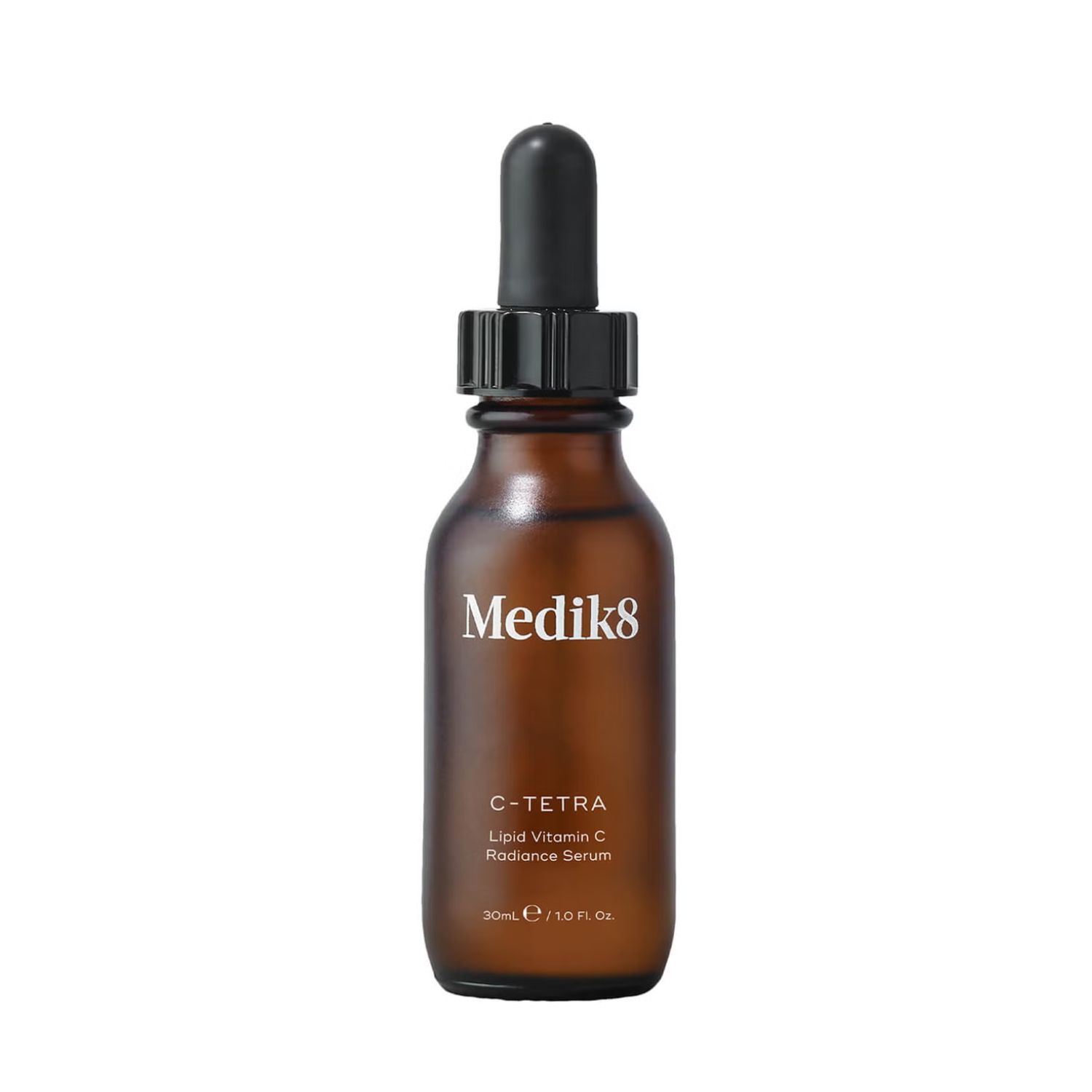
RRP: £39 Vitamin C: 7% Key ingredients: Vitamin E, Jojoba oil
This was one of the serums we, as a team, all agreed on. We're big fans of this brand for their high-tech formulas and affordable pricing. A gentle yet effective concentration of Vit C (7%) combined with Vitamin E for extra antioxidant powers and jojoba seed oil gives the serum a lovely, plumping, and juicy feel. Despite the richer texture, this sank in well and left our skin feeling comfortable, plump and perfectly smooth. Expect an instant dewy glow and results on skin tone within a few weeks. It also smells lovely and fresh due to natural citrus oils, and the tinted dropper keeps the ingredients super stable. You really can't go wrong with this one.
Buy if: You’re looking to get started with Vit C, and who wants a fuss-free one and done serum to use in the mornings.
Avoid if: You have very oily or breakout-prone skin then oil-based products won't be for you but our dry-skinned texture absolutely loved it.
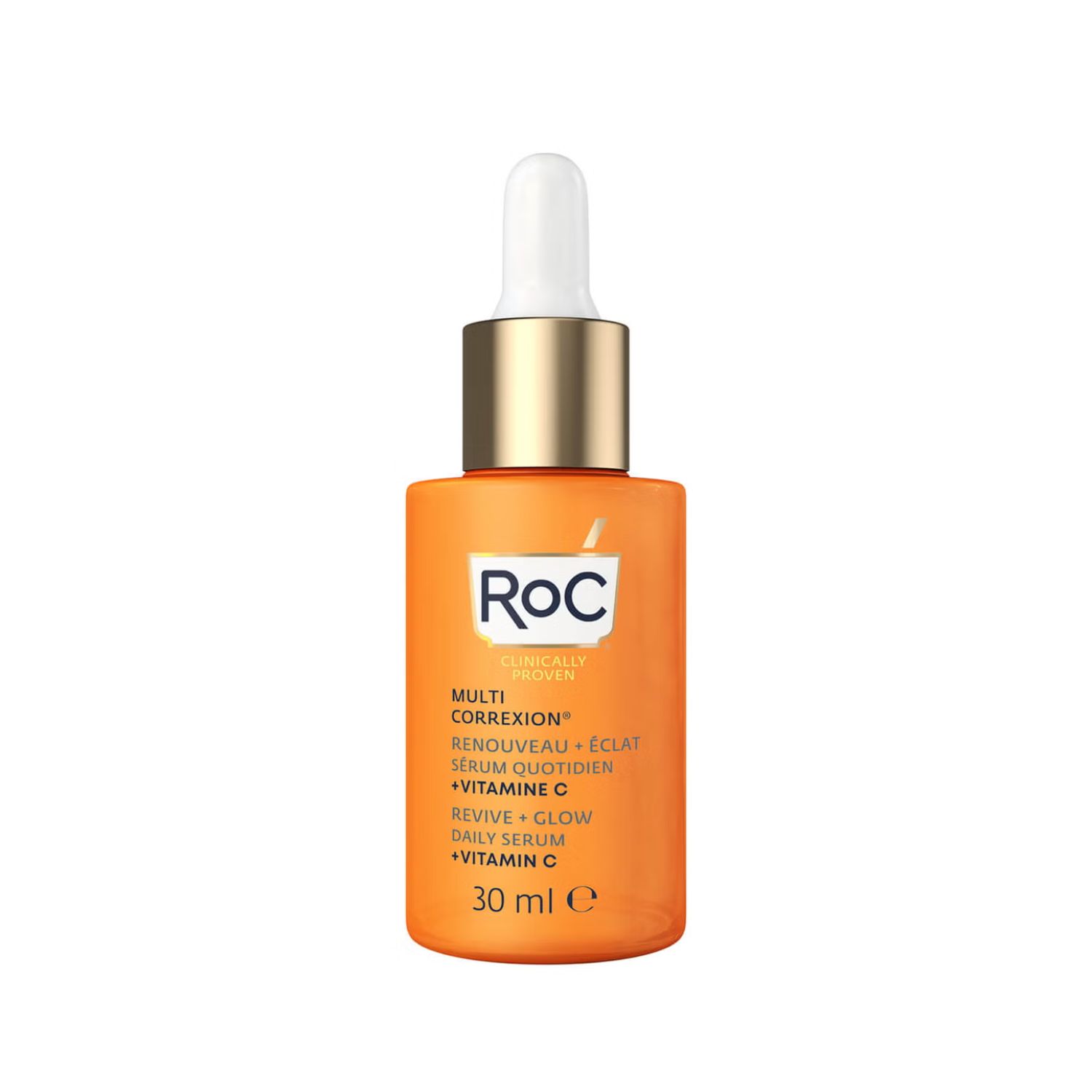
RRP: £35.99 Vitamin C: 10% Key ingredients: Peptides, antioxidants
We were excited to try this brand's Vitamin C serum since we heard Sarah Jessica Parker is a fan of RoC Skincare. Clinically proven and dermatologically tested, this serum promises to brighten dull skin, and after testing, we can agree that it did. This formula contains 10% potent Vitamin C in its most stable form, so it helps to even skin tone and boost radiance. With the help of peptides and an antioxidant blend, it is gentle enough to use every day. We were pleasantly surprised to see that this Vit C serum brightened our skin just as much as some of the more expensive serums on this list, and for £35.99 (which is quite affordable for this type of serum), we would recommend it to anyone wanting to try the antioxidant for the first time.
Buy if: You're starting with Vit C and want a hard-working, gentle blend at a reasonable price.
Avoid if: You're looking for something with a higher concentration.
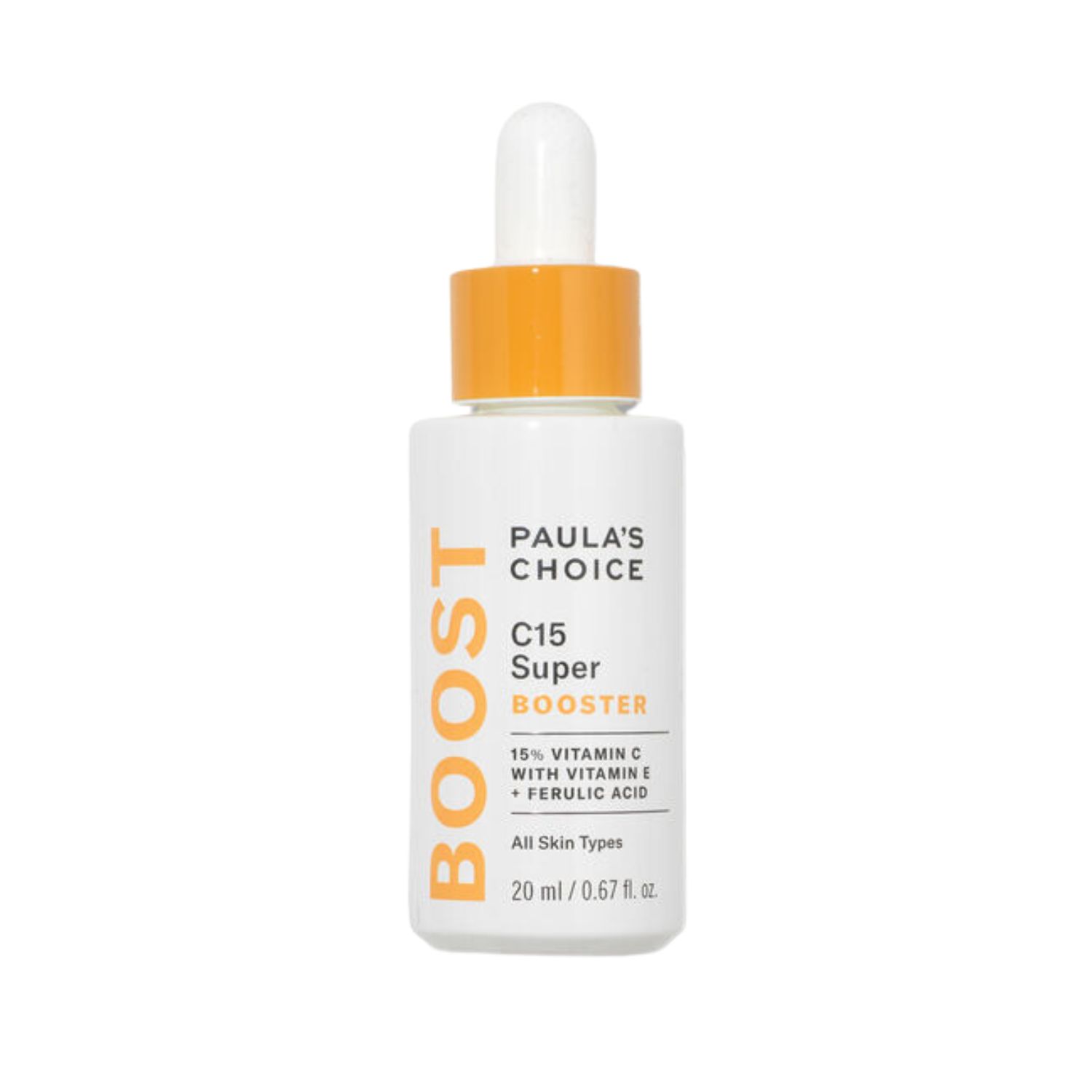
RRP: £52 Vitamin C: 15% Key ingredients: Vitamin E, ferulic acid
Paula's Choice is something of an insider's favourite amongst beauty editors. The brand specialises in no-nonsense ingredient-led skincare that never oversells itself. This Vitamin C serum contains 15% ascorbic acid plus its best friend ferulic acid and unusually lists its pH as a selling point (an acidic 3.5, which gently stimulates the skin, in case you were wondering). As well as applying it directly onto clean skin, as with the other products, you can also drop this into your moisturiser or hydrating serum. This makes it a great choice for those of us who like to keep steps in our skincare routine to a minimum and speed up that morning routine. We love the light, mixable texture although some may wish it was a little richer and more nourishing. Avoid blending it with other skincare ingredients that you should never mix, like retinol. Stick to one active at a time.
Buy if: You want a good value, stable formula that can be mixed into creams
Avoid if: You enjoy a richer, more nourishing texture
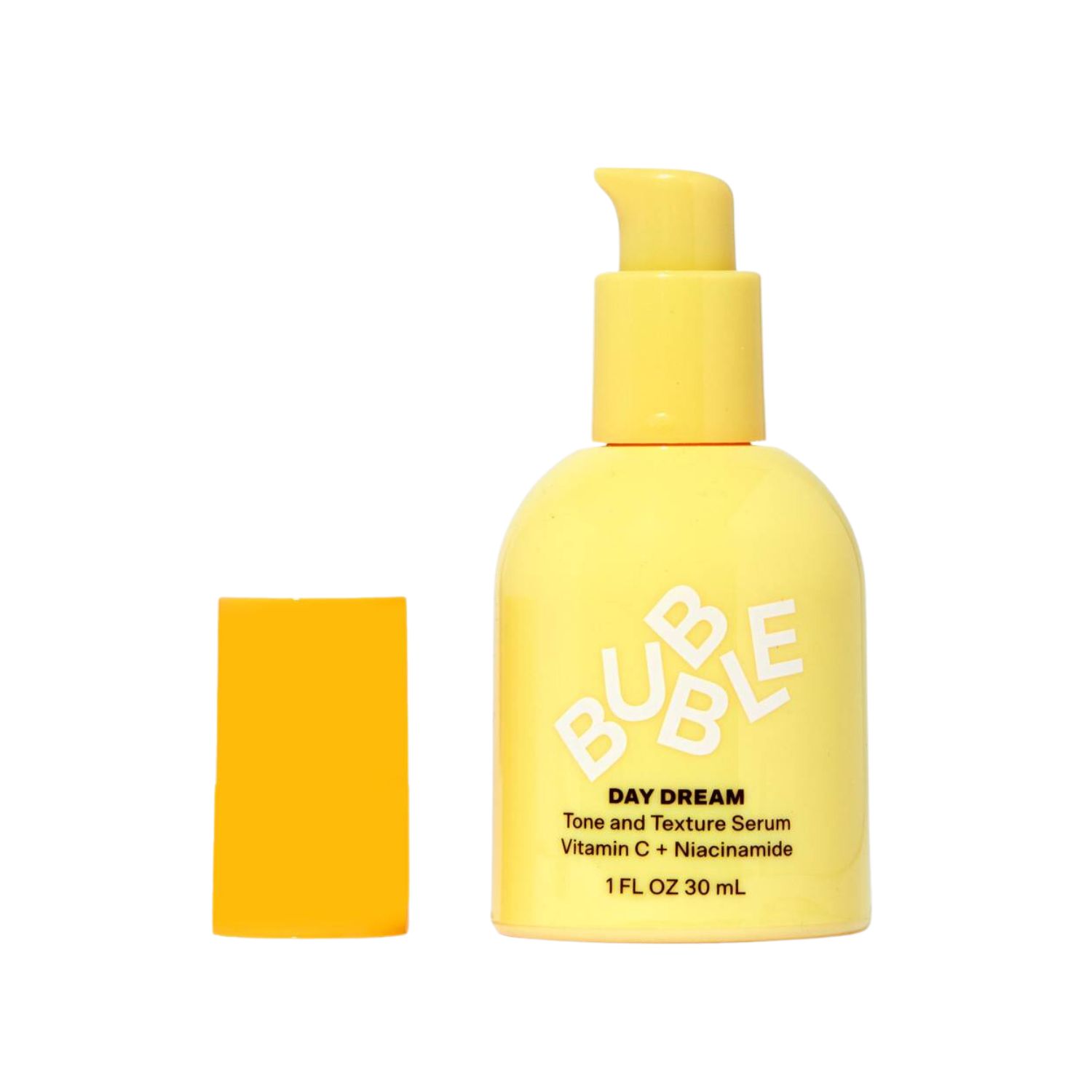
RRP: £18 Vitamin C: Not specified Key ingredients: Alpha Arbutin, Niacinamide, Plant Derived Ceramides
If you're using Vitamin C serums to help reduce the look of dark spots or scarring, this is the best Vitamin C serum for you. An ideal trio of Vit C, niacinamide and Alpha Arbutin, the latter works to even skin and reduce the appearance of spots and hyperpigmentation. It works without irritating the skin or disrupting your usual skincare routine, as the powerful niacinamide blend calms any irritation and keeps the skin hydrated. Overall, we found our skin was softer and brighter while testing and couldn't believe this was under £20.
Buy if: You want an affordable Vitamin C serum that works on hyperpigmentation
Avoid if: You want your serum to focus solely on a strong Vit C blend
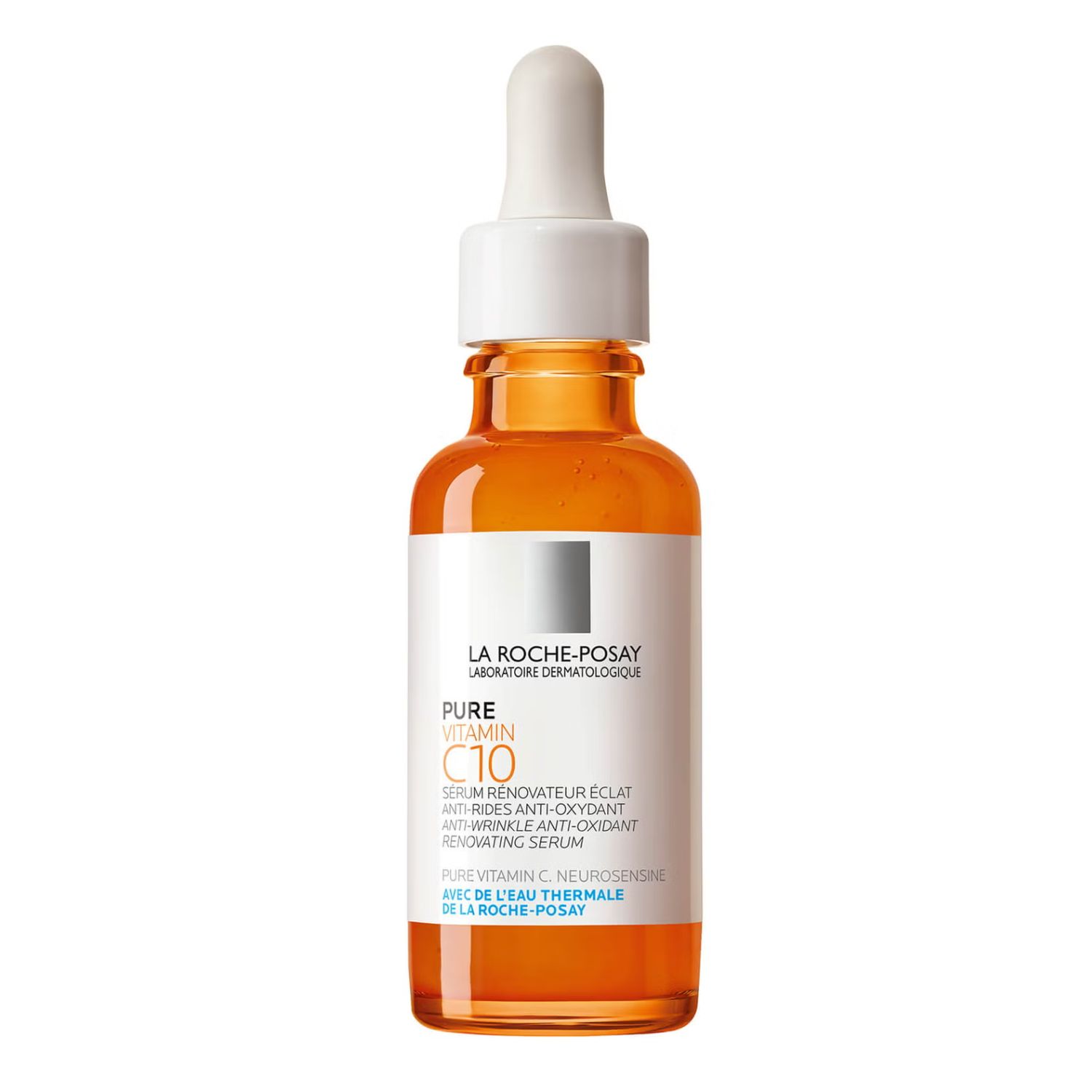
RRP: £45 Vitamin C: 10% Key ingredients: Hyaluronic acid, salicylic acid
If you have sensitive skin, this is the antioxidant serum for you. La Roche-Posay is known for ultra-gentle skincare that, crucially, doesn't compromise on real results. In our opinion, the brand's serums are the best La Roche-Posay products in their roster. A clear and non-sticky formula, this sinks nicely into the skin thanks to comfort-boosting HA and sits nicely under a moisturiser and SPF. A 10% concentration of Vitamin C is a nice sweet spot for the active ingredient, too. Not too delicate, not too harsh. This is the best Vitamin C for cautious first-timers, it's one we mention most often to those trying to introduce the ingredient into their routine. A brilliant, frill-free buy that's not intimidating (or wildly expensive).
Buy if: You have sensitive skin and need a formula gentle enough for daily use
Avoid if: You have dry skin
How we tested the best Vitamin C serums
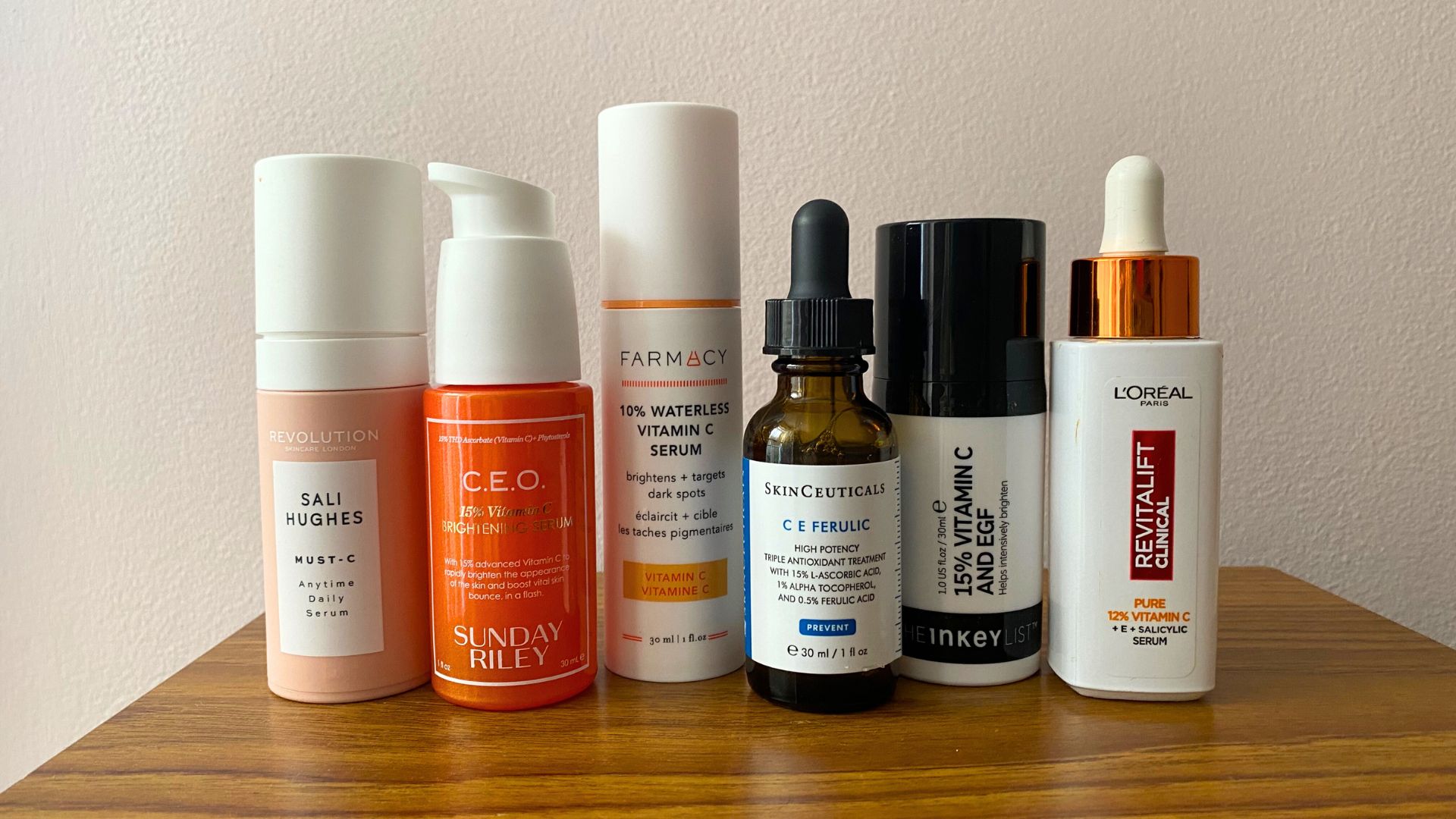
A selection of Vitamin C serums that we tested for this guide
As we say, the w&h beauty team are Vitamin C obsessives, so many of the products that made this guide, including SkinCeuticals CE Ferulic, Medik8 C-Tetra and The Inkey List 15% Vitamin C and EGF are old favorites that we have used - and loved - for years.
Any new products that we tested specifically for this guide were worn daily for a minimum of four weeks, as this is typically how long a Vit C serum needs to make a visible difference to skin tone and texture (although some results can appear more quickly) We also assessed each serum on:
- Ease of application
- Feel on the skin
- Value for money
- Packaging
- Texture
- Other included ingredients
Your Vitamin C FAQs answered
How to choose a Vitamin C serum
How do you pick the right option for you? we've enlisted the help of dermatologists, Dr Elif Benar, and Dr Salomé Metreveli to provide their expert thoughts.
- Packaging matters: Vitamin C is a famously unstable ingredient. It is incredibly sensitive to light and air and must be kept protected from both as far as possible in order to remain active and effective. Avoid jars and opt for pipette applicators, or even better - light-shielding airtight bottles.
- Save the date: Because of its unstable nature, even the best Vitamin C serums can go out of date much quicker than the rest of your best skincare products. Check the little symbol on the packaging of a jar with a number on it. 6 means it'll last 6 months, 12 is a year, and so on. In general, most Vitamin C serums have a 6-12 month shelf life.
- Check the concentration: Not all serums are created equal - the concentration of the active ingredient will impact how effective it is, and how quickly it'll get to work. "In general, you’d use a minimum of 5%, and a maximum of 20-30%" says Dr Metreveli.
- Beginners should ease in: Don't jump straight into 20% concentrations if your skin's not used to active ingredients, warns Dr Metreveli. "Those with more sensitive skin should start on a lower percentage, and gradually work their way up once the skin begins to tolerate it."
Why use a Vitamin C serum?
Why a serum over a cream, or infused in your best cleanser? To cut to the chase, serums' concentrated formulas are the best way to treat any skincare concerns. Their light, liquid consistency means they sink deeper into the skin than even your best face moisturiser, and get to work much quicker. We're always wary of all-singing, all-dancing cleansers infused with hyped-up ingredients like retinol and acids. Really, these don't sit on your skin for long enough to get to work, washing those active ingredients (and to be frank your cash), down the plughole.
If you're wondering how to apply serum, it's always onto clean skin after cleansing, before your moisturiser.
What does a vitamin c serum do to the face?
After using the best Vitamin C serums, you'll notice your face looking brighter. It's also one of the best hyperpigmentation treatments that you can safely do at home. How does all of this brightening, protecting magic work exactly?
Skincare expert Fiona Brackenbury explains, "Vitamin C is an antioxidant powerhouse that prevents cellular damage from UV rays and pollution, which are the top two most damaging elements which our skin comes into contact with daily."
She continues, "If that wasn’t enough to make you reach for a vitamin C serum, it's also essential for collagen production. We lose 1.5% a year after the age of 30 and this reduction speeds up during menopause where we can lose a whopping 30% of our collagen."
Is it okay to use a vitamin c serum every day?
In theory, yes! If you don't notice any sensitivity or irritation from using it, it's safe to use your Vitamin C serum daily. For me personally, I alternate between Vitamin C and HA serums daily but feel free to pick what works best for you.
Brackenbury agrees, "Vitamin C is best used daily as you don’t want to miss out on the antioxidant protection, however, I would always caveat that with saying to listen to your skin and consider any stress, medication, menopause or sun exposure that may cause your skin to be more sensitive."
Who should not use a vitamin c serum?
Really, everyone can use the best Vitamin C serums - there's really no downside to using one. I've you're not sure whether Vitamin C can be bad for the skin, the short answer is no, it's usually not - if it's in date and the right concentration for your skin type.
Easily-irritated skin should proceed with caution, as you would when you're introducing any new product to your skincare routine for sensitive skin.
"Every skin is different and unique and has a sweet spot for skincare actives", says Brackenbury. "If you have sensitive skin or have never used a vitamin C before, vitamin C derivatives such as tetrahexyldecyl ascorbate will be easier for you to tolerate." If you'd rather avoid Vit C altogether, niacinamide is often touted as a gentler alternative, and does offer some of the same antioxidant and brightening benefits (hence the longstanding niacinamide vs vitamin C skincare debate)
Sign up for the woman&home newsletter
Sign up to our free daily email for the latest royal and entertainment news, interesting opinion, expert advice on styling and beauty trends, and no-nonsense guides to the health and wellness questions you want answered.

As woman&home's Beauty Channel Editor, Fiona Mckim loves to share her 15+ years of industry intel on womanandhome.com and Instagram (@fionamckim if you like hair experiments and cute shih-tzus). After interning at ELLE, Fiona joined woman&home as Assistant Beauty Editor in 2013 under industry legend Jo GB, who taught her to understand ingredients and take a cynical approach to marketing claims. She has since covered every corner of the industry, interviewing dermatologists and celebrities from Davina McCall to Dame Joan Collins, reporting backstage at London Fashion Week and judging the w&h Beauty Awards.
-
 Everyone in New York is wearing a trending colourway that will elevate your everyday wardrobe, including Naomi Watts
Everyone in New York is wearing a trending colourway that will elevate your everyday wardrobe, including Naomi WattsSpotted head to toe in a rich, warm tan at the Ralph Lauren show, Watts shows us exactly why we should be investing in these classic hues
By Molly Smith
-
 How to watch Race Across the World from anywhere - stream the BBC reality series online
How to watch Race Across the World from anywhere - stream the BBC reality series onlineThe acclaimed reality series is back for a highly anticipated fifth outing, and there's no need to miss out on any of the action
By Lucy Wigley
